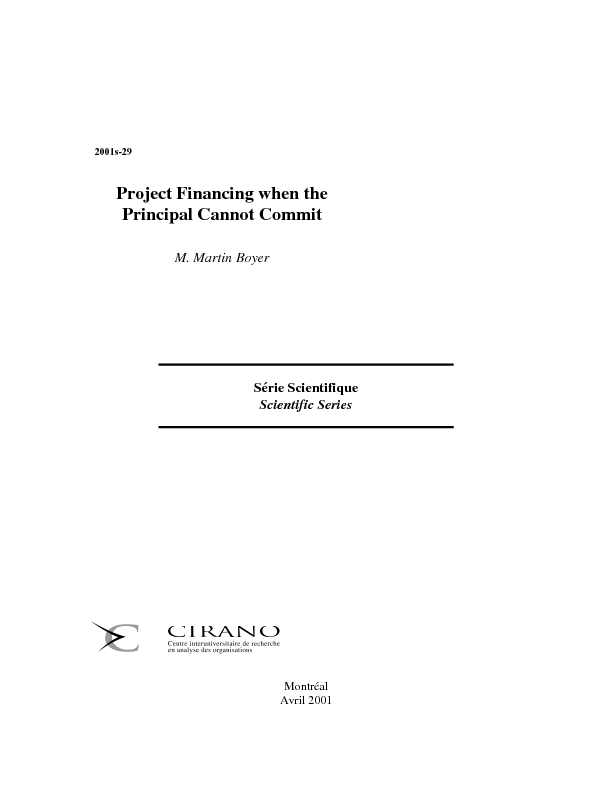Project Financing when the Principal Cannot Commit
Suppose an entrepreneur needs funds from a financier to invest in a risky project whose cost is fixed, and whose return may be high or low. Suppose also that the project's realized return is an information that is private to the entrepreneur. If the amount the entrepreneur pays back to the financier depends on the risky project's outcome, if it is costly for the financier to verify the project's true realized return, and if the financier cannot commit to an auditing strategy, then it is optimal for the entrepreneur to misreport the true state of the world with some probability. In other words, it is in the entrepreneur's interest to lie with a degree of probability. We find that the entrepreneur over-finances his project when the financier cannot commit, and that he has greater wealth ex post if the project is not successful. Over-borrowing and greater wealth in the low-return state result in reducing the number of false reports in the economy.
[ - ]




